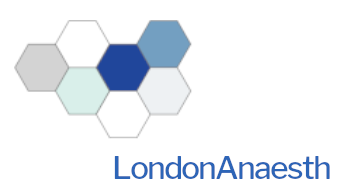
Recruitment into anaesthetics in Autumn 2021 was marred by a series of errors, euphemistically described as ‘significant incidents’. Candidates were given the wrong scores. Incorrect emails were sent out, and offers were made and then immediately withdrawn. There were concerns raised about the communications style used with “potentially distressed candidates”.
An urgent enquiry was convened to find out what went wrong, and what lessons could be learned. The target date for its completion was 26th November 2021. This enquiry, which was chaired by Professor Russell Smith, was given access to all the relevant documents and information, and the enquiry panel was made up of representatives from HEE, the Royal College of Anaesthetists, and trainees.
But that report has not yet seen the light of day. And our Freedom of Information (FoI) request for a copy of the report has just been rejected. The reason given for this rejection is that NHS England are planning to “publish the report when all normal channels for review have been completed and the contents of the document agreed and approved ….. it will be published in its final form in due course”
What’s going on?
Given that it’s over two years since the enquiry was set up then this delay in publishing their report is completely unacceptable. We have appealed against the refusal of the FoI request, on two grounds – irrationality and public interest.
‘Irrationality’ is a phrase lawyers use instead of the more plain “nonsense!” This enquiry was intended to run quickly and to complete its report within a month. Certainly before the next round of recruitment was to take place. So is it credible that nearly two years later it is still awaiting approval? Irrationally is more correctly defined as a reason “… so outrageous in its defiance of logic or of accepted moral standards that no sensible person … could have arrived at it.”
The second ground is Public Interest. Have the recommendations of the report been put into action? Has the handling of data on spreadsheets been improved? The available evidence suggests the opposite. This year HEE were forced to issue yet another apology – after they invited the wrong candidates to interviews. Once again, they say they are trying to “identify the reasons for this mistake at an organisational level and to take any further steps necessary to deliver as fair and robust a recruitment process as possible”.
At least they didn’t ask us to ‘bear with them’.
We teach doctors to be open and honest when they make mistakes. And we expect the organisations responsible for their education to act in a similar manner. They need to demonstrate that they have taken actions to correct any performance deficits identified. This report, set up to ensure organisational learning, needs to see the light of day, and we need the reassurance that it has been “actioned”.
Watch this space.

